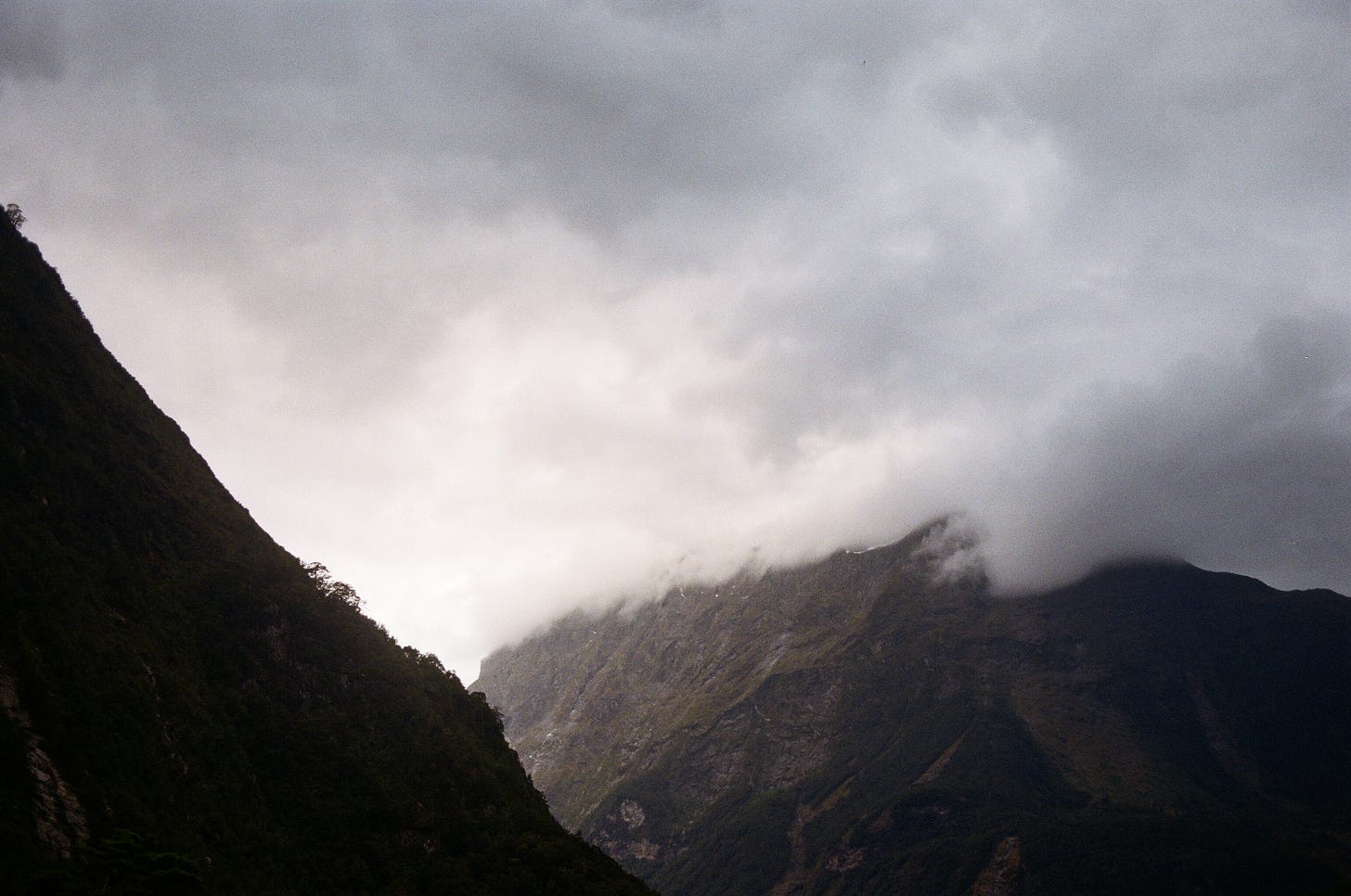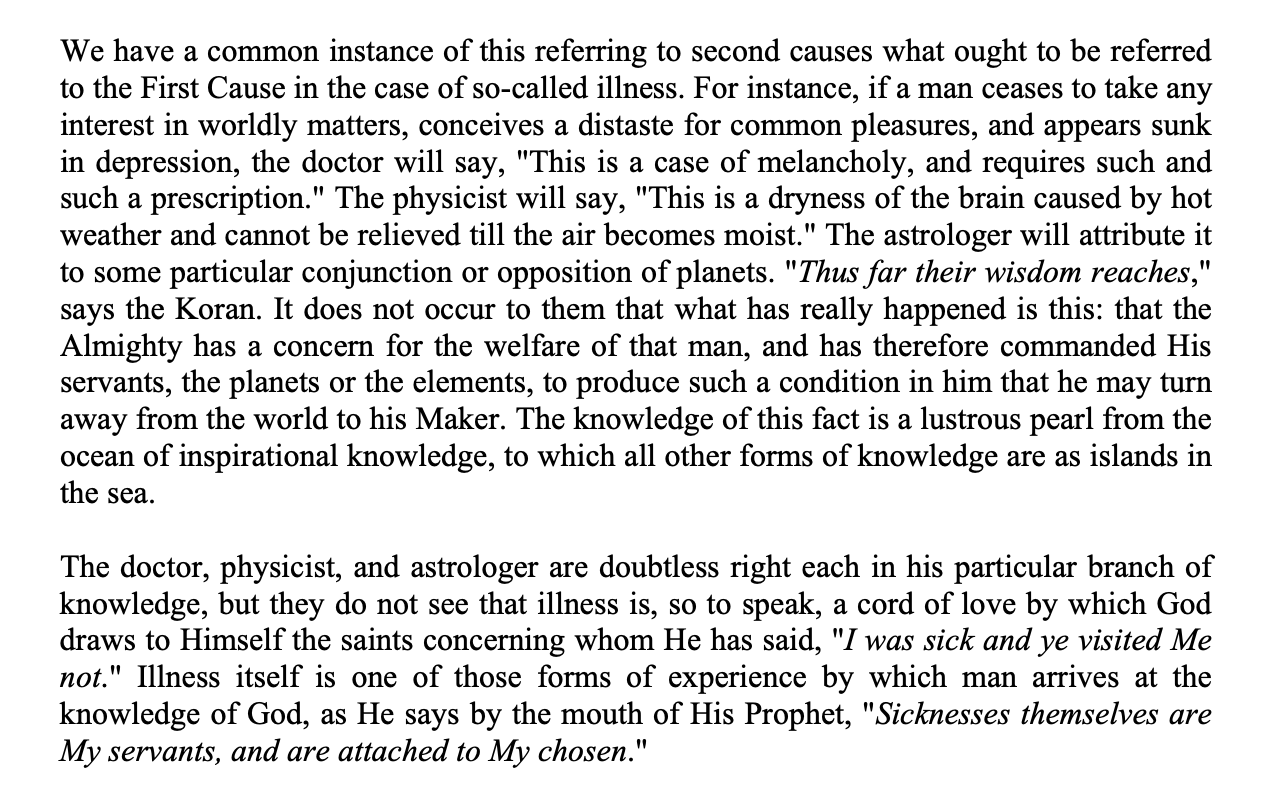The shade, sorrow and its importance
> Have you not considered your Lord—how He extends the shadow, and if He willed, He could have made it stationary? Then We made the sun for it an indication.
I used to be darker, then I got lighter, then I got dark again
Something too big to be seen was passing over and over me
We must start where we are, else be insincere. Too many wish start anywhere but this. When I publish a piece written earlier, here I feel insincere; must remember that I was there when writing it, if not now. Here I differ, of course, with time: “The eye is a clock made of water.”
The opening lines from song, an image: standing sunny atop a hill, seeing shades thrown by clouds above, the shadow below matching movements. I feel all this within; now lay back and daydream shapes in the sky. What moves here, what hands or script in which dance we are but puppet and prop?
What signs of the times do you see in your dreams, what knowledge of clouds within?1 I have had dreams soften when they should surely worsen with my fall. When I am dead broke, somehow sleep does not collect my debt—what is this? God is too merciful a half measure at least. Someone tell Him the path to hell is far too easy.2
And what of this pleasure—pretty, isn’t it? Of course, the root of ‘pretty’ reveals a trick: that this is felt to be artifice. I would call you beautiful first. Pretty rather seems desire a distance, as if we distrust our own eyes. “Beautiful, isn’t it”—who are you asking, are you unsure?
I say there is beauty in death and despair, every sadness of the human heart contains such a seed; it is that here we live because we feel the world within. The whole is united in suffering: “I am you and you are me and what have we done to each other?” Here we may find fair signs for reason as much as in our many joys. Silence, solitude, sadness; all these of the shade are as important in this life as light.
… one of the greatest blessings of God, that most human beings are completely unaware of, is shade. Now this is obviously more obvious in a hot country, I admit that. But if you start thinking about it, it actually gets quite profound because what he said is that shade is a mixture of light and darkness. And the only reason we can see is because of this admixture of light and darkness. If we were in pure light we could not see, if we were in pure darkness we could not see. So shade, in fact, is everywhere and it’s happening all the time: right now there is a mixture of light and darkness in this room, which is enabling us to see. And what the Quran is saying, had it not been for the sun you wouldn’t even have thought about the shade, it’s not something you would have given a whole lot thought. So there’s an idea of learning about the shade and seeing it as literally a proof of the existence of God.
Hamza Yusuf: “I’m very now accustomed to knowing, I mean I can pretty much work out what time of the day it is just on my shadow if the sun’s out—because I know the shadow pretty well in the winter and the summer, and if you live with Bedouin who know the sun really well it’s phenomenal how accurate they can tell you the time based on just looking at the shadow.”
Still He wants us work for it, alright—but for what? Surely no cosmic joke. For this, what evidence could there be? None. We must take it on faith, or something like that; on taste and faith in our own, without authority or ground. You must swim, hold fast. Wait—I have travelled too far into abstraction, what does any of this mean? I am hiding here behind words, or can you see me at the edge? I speak authoritatively from behind the curtain to encourage this game we play. We collaborate here, you and I; a prisoner’s dilemma. Few deviate, some say they are are afraid; or they do not believe the odds Pascal offered, otherwise refuse them. The sensible ask for further assurances, that others move first. Of course, this is precisely the problem; and in it an essential contradiction negates this line. There is no faith but of one alone—nor heaven, nor hell.



